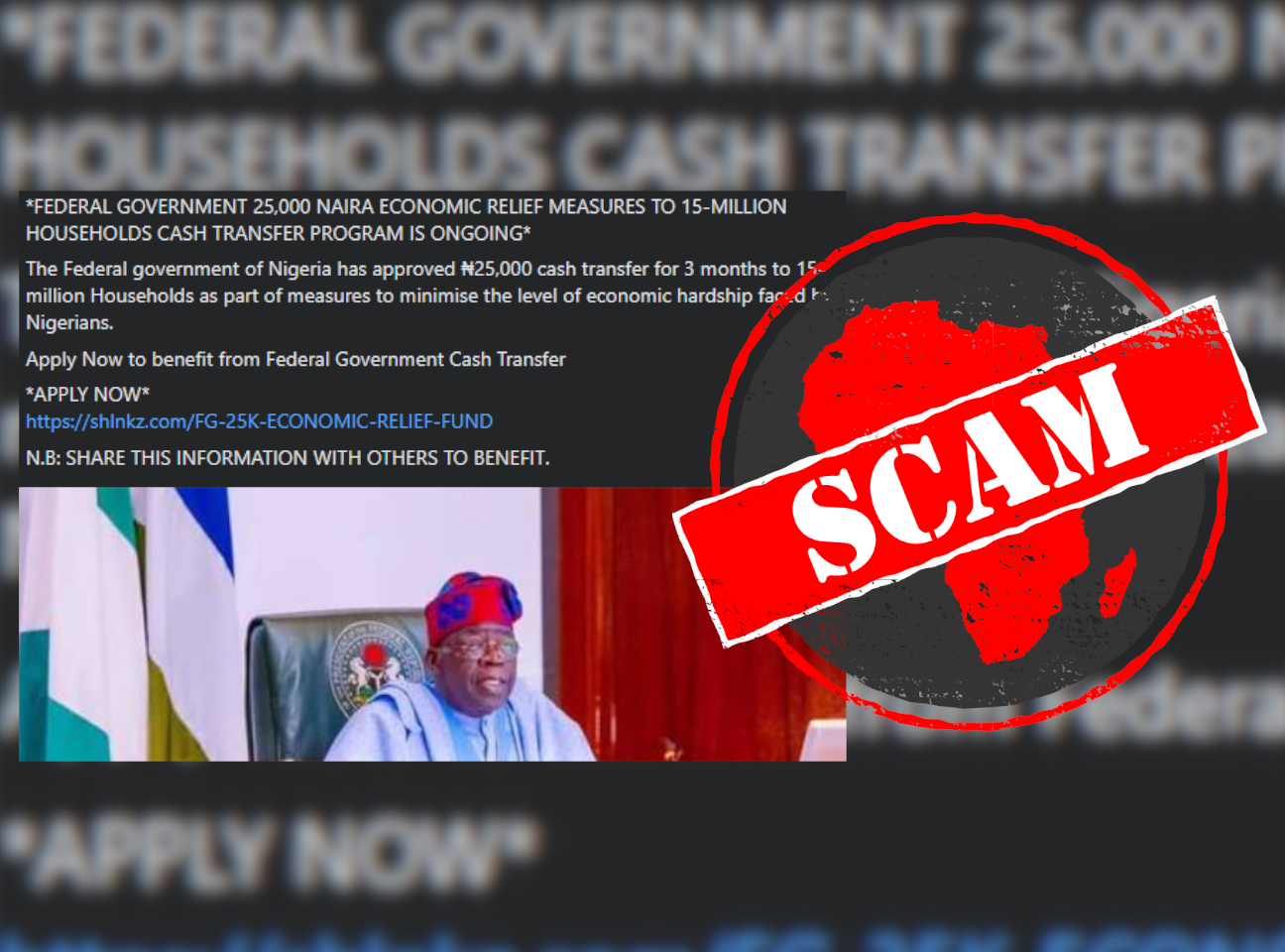IN SHORT: Beware of posts claiming that the federal government is disbursing N30,000 in relief funds to all Nigerians. This is just another attempt to scam you.
A message circulating on WhatsApp claims that the federal government is giving out N30,000 (about US$20) cash to all Nigerians.
The message starts: “FEDERAL GOVERNMENT RELIEF FUND ₦30,000 CASH TRANSFER FOR ALL HOUSEHOLD.” It includes a link with the call to action “CLICK HERE”.
The message reads: “The Federal Government has approved ₦30,000 CASH TRANSFER to all Individuals In the Country. All Nigerian Citizens are entitled to benefit from this. Hurry Now and check if you are eligible for FG ₦30,000 Cash Transfer. Those who have applied have been credited already.”
Similar messages have been found on Facebook here, here and here.
But has the federal government approved giving out N30,000 to every Nigerian? We checked.

Beware of phishing, no evidence of giveaway
In February 2024, president Bola Tinubu met with state governors and leaders from the private sector to discuss how to cushion the effects of the economic crisis, particularly the rising cost of food in the country.
But reports from the meetings said nothing about the federal government giving out N30,000 cash grants to Nigerians.
We checked credible media resources to see if there had been any such announcements after the meetings and found nothing related to the disbursement of funds to all citizens.
Africa Check clicked on the link attached to the WhatsApp message. It led to a website which was flagged as “not secure” in our browser. However, we got through to the website and the homepage read: “FEDERAL GOVERNMENT N30,000 RAPOD RESPONSE TRANSFER CASH.”
The page featured comments, supposedly from beneficiaries of the funds. We filled in made-up details and we were told to share to 12 WhatsApp groups to be eligible for the handout.
This is an example of engagement baiting, where a social media post prompts users to like, comment, or share the content, boosting its visibility but offering no tangible reward.
To protect yourself from scams on Facebook, read our guide.
Republish our content for free
For publishers: what to do if your post is rated false
A fact-checker has rated your Facebook or Instagram post as “false”, “altered”, “partly false” or “missing context”. This could have serious consequences. What do you do?
Click on our guide for the steps you should follow.
Publishers guideAfrica Check teams up with Facebook
Africa Check is a partner in Meta's third-party fact-checking programme to help stop the spread of false information on social media.
The content we rate as “false” will be downgraded on Facebook and Instagram. This means fewer people will see it.
You can also help identify false information on Facebook. This guide explains how.




Add new comment